'Battle of Orgreave': Legal submission for public inquiry
- Published
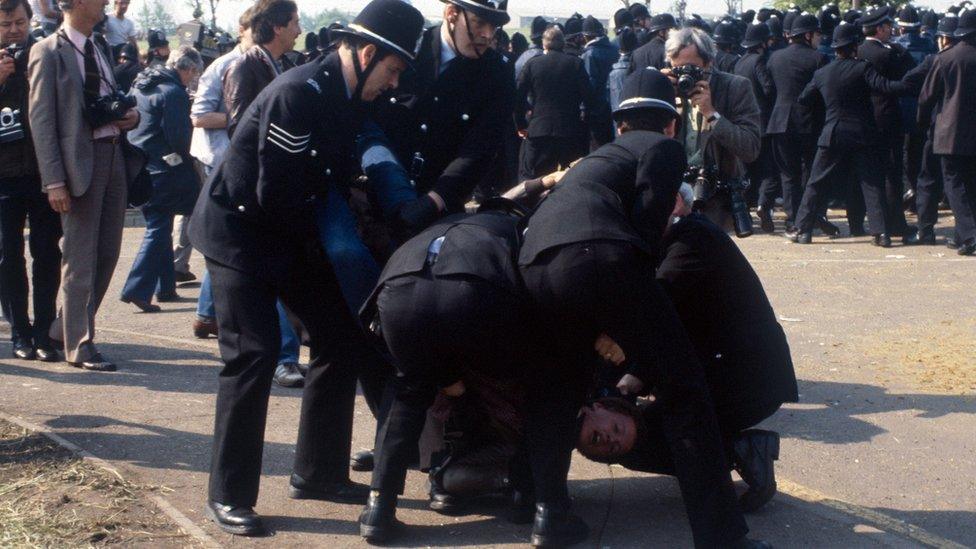
Thousands of miners and police clashed at the Orgreave coking site in South Yorkshire
Legal papers demanding a public inquiry into police conduct during violent clashes of the 1984-5 miners' strike have been handed to the government.
About 10,000 strikers and 5,000 police officers were involved in what became known as the "Battle of Orgreave" in June 1984.
Campaigners are urging Home Secretary Theresa May to consider their legal submission "fairly and objectively".
Seventy MPs have signed a Commons motion, external calling for such an inquiry.
The Orgreave Truth and Justice Campaign (OTJC) said it wanted Ms May to "consider either establishing an independent panel, similar to that established in 2009 to investigate the 1989 Hillsborough disaster, or a public inquiry".
More than 120 officers and pickets were injured and 93 people were arrested following the incident at the Orgreave coking plant, near Rotherham.
In June the Independent Police Complaints Commission (IPCC) ruled South Yorkshire Police would not be investigated because the passage of time meant allegations of assault and misconduct at the plant "could not be pursued".
But the watchdog said its decision could be reviewed if further evidence emerged.
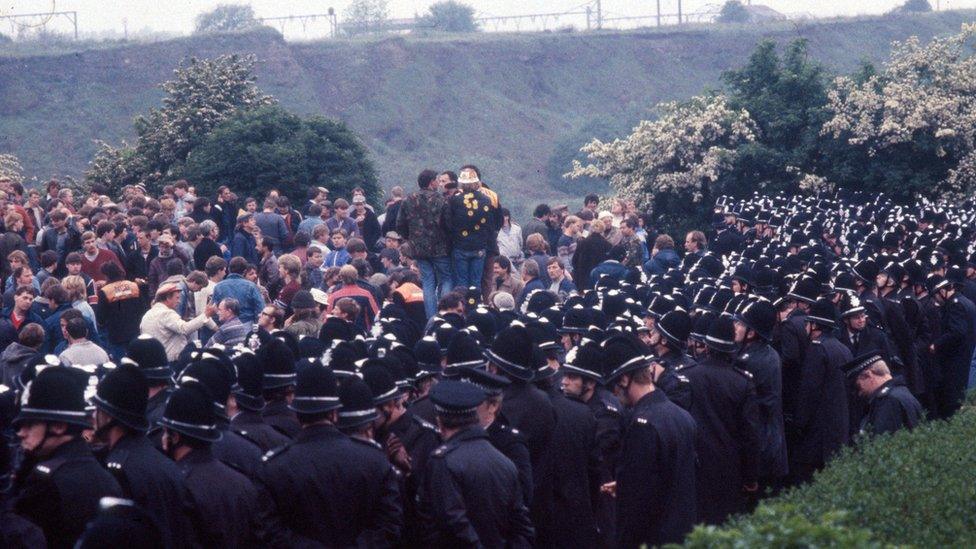
About 10,000 strikers and 5,000 South Yorkshire Police officers were involved in what became known as the "Battle of Orgreave"
South Yorkshire Police referred itself to the IPCC after a BBC documentary in 2012 claimed officers may have colluded in writing court statements.
The force also faced claims that officers had used "excessive force" and given false evidence in court.
Speaking earlier, Barbara Jackson, secretary of the OTJC said: "We had a productive meeting with the home secretary in July and now that we have completed our legal submission we are looking forward to presenting it to her with the belief that she will look at it fairly and objectively.
"We remain committed to justice over Orgreave."
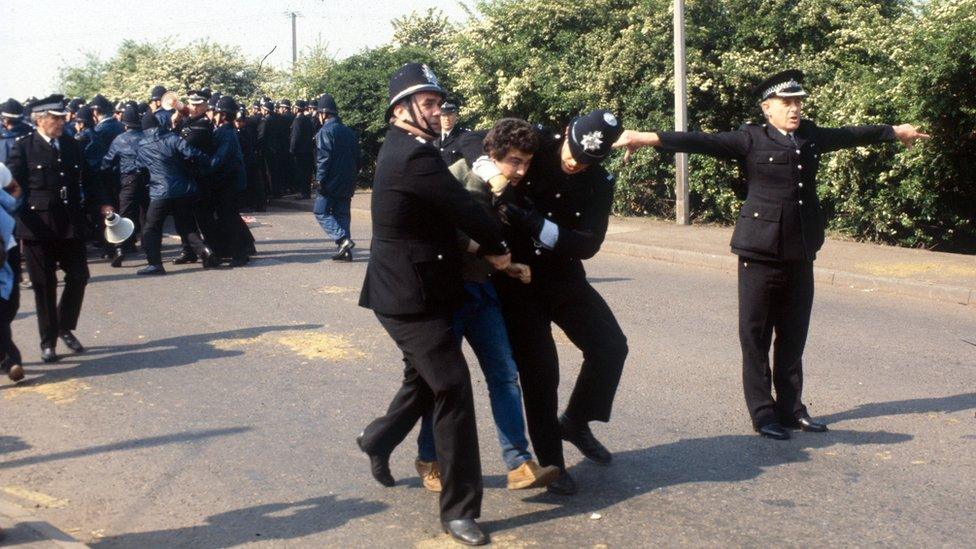
More than 90 striking miners were arrested at Orgreave
Those arrested at Orgreave were held for a variety of alleged offences, with several being put on trial for rioting.
The trial collapsed after 16 weeks when it became clear police evidence was unreliable.
The IPPC's decision followed a two-year "scoping exercise" during which thousands of documents, film and photographs were analysed.
- Published12 June 2015
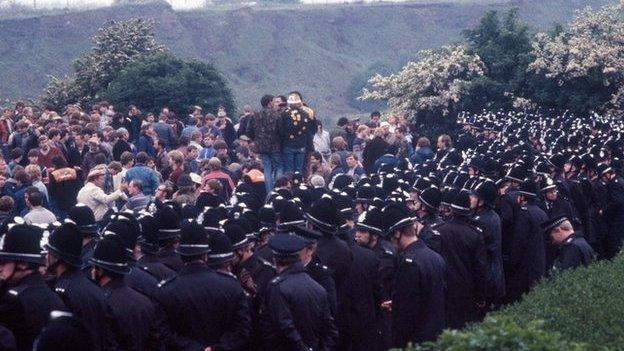
- Published12 June 2015
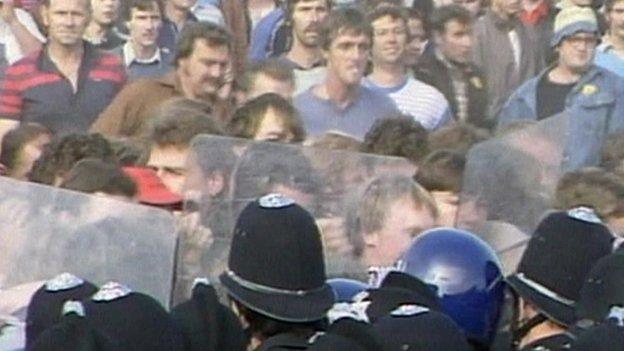
- Published12 June 2015
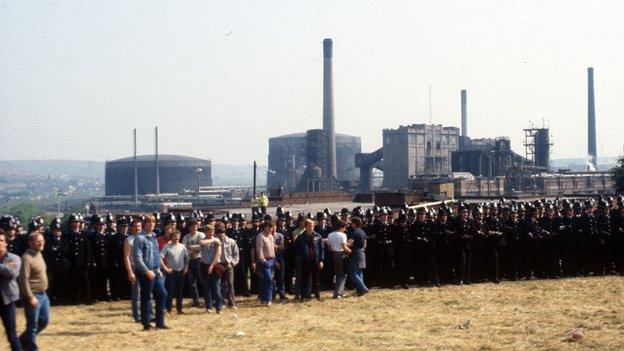
- Published17 June 2014
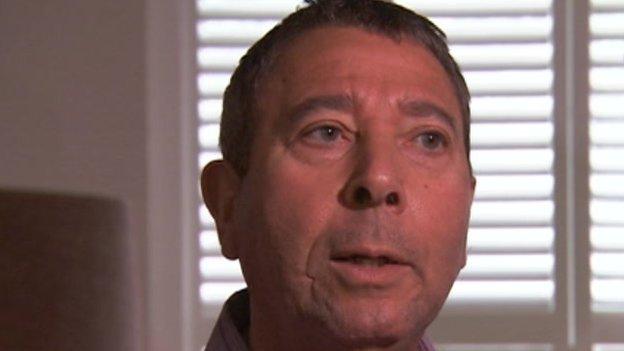
- Published28 March 2014
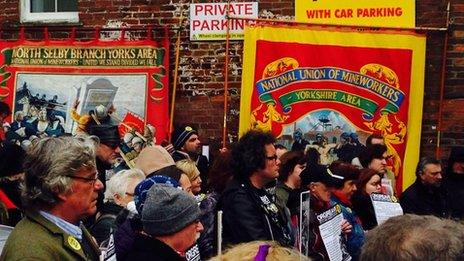
- Published22 November 2013
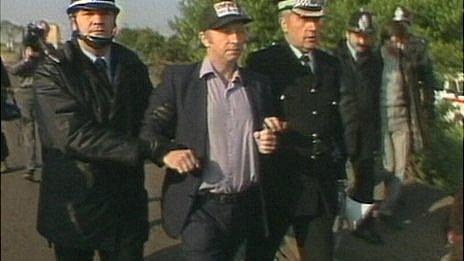
- Published14 November 2013
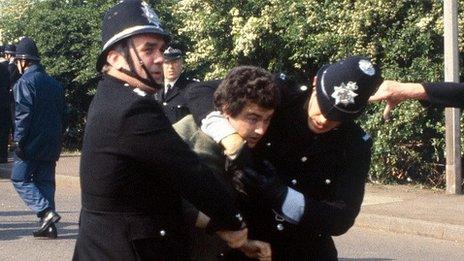
- Published14 November 2013
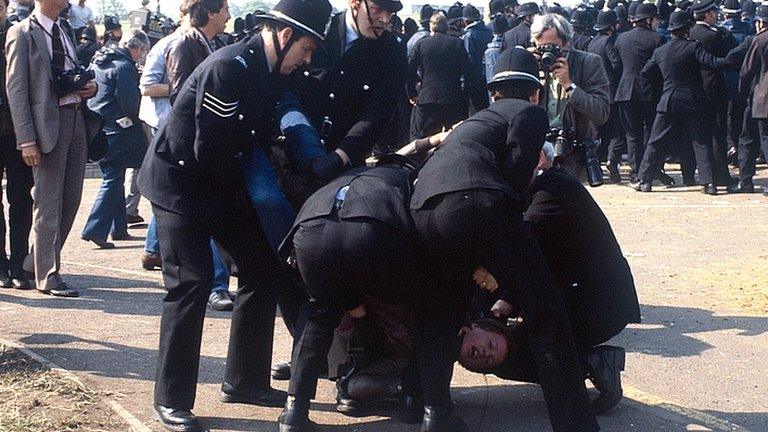
- Published22 May 2013
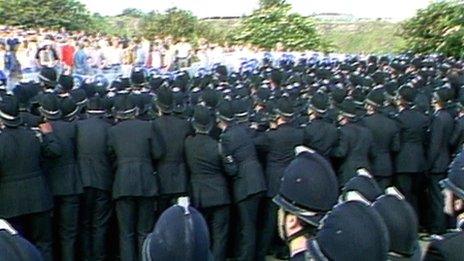
- Published27 November 2012

- Published16 November 2012

- Published22 October 2012
